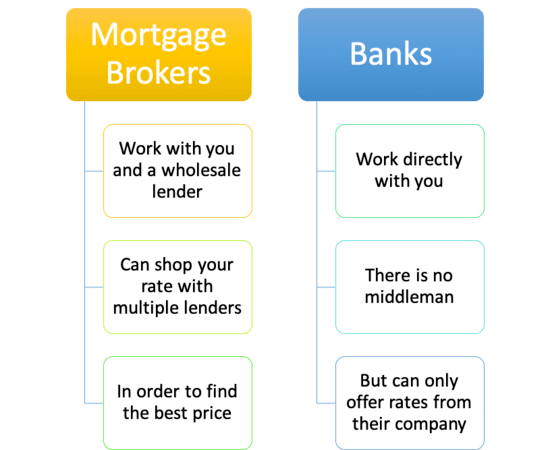Jumbo Loan: Flexible Home Loan Solutions for Huge Property Purchases
Jumbo Loan: Flexible Home Loan Solutions for Huge Property Purchases
Blog Article
Recognizing What a Jumbo Loan Entails and How It Varies From Traditional Loans
Browsing the complexities of jumbo loans discloses a financing option customized for those venturing into high-value genuine estate, typically exceeding the limits established by the Federal Real Estate Finance Company. On the other hand, standard finances are often extra obtainable, taking advantage of backing by entities such as Fannie Mae and Freddie Mac. The significant threat linked with big finances demands much more rigorous certification demands, consisting of higher credit history and substantial deposits. As these two funding kinds cater to differing financial landscapes, comprehending their subtleties is important for making informed choices in the complex world of realty financing. But just how do you identify which course ideal fits your monetary approach?
Definition of Jumbo Financings
Jumbo loans are a kind of home loan that go beyond the conforming financing limits established by the Federal Real Estate Financing Firm (FHFA) These lendings satisfy customers who need to finance residential or commercial properties that are extra pricey than what conventional funding limits permit. The FHFA develops yearly conforming funding limits, and any type of lending surpassing these thresholds is classified as a big lending.
Typically, jumbo fundings are made use of in high-cost actual estate markets where home rates dramatically surpass nationwide standards, such as in cities or high-end housing sectors. As these lendings are not qualified for acquisition by Fannie Mae or Freddie Mac, they bring intrinsic threats for lenders as a result of their larger size and non-conformity (jumbo loan). As a result, loan providers usually enforce more strict qualification requirements for jumbo financings than conventional adjusting lendings.
Consumers seeking big lendings have to usually show a solid financial profile, including a higher credit rating, robust revenue verification, and considerable down payment, frequently 20% or more. In addition, loan providers might call for more considerable paperwork to assess the customer's ability to take care of bigger regular monthly repayments. Recognizing the certain characteristics of big lendings is crucial for prospective customers navigating this segment of the home mortgage market.
Standard Financings Introduction
While jumbo lendings satisfy high-value residential property financing, traditional loans represent the more typical home loan choice in the housing market. These car loans are not insured or guaranteed by any type of government entity, such as the Federal Real Estate Administration (FHA) or the Department of Veterans Affairs (VA) Instead, they are backed by private lenders and stick to guidelines set by government-sponsored business (GSEs) like Fannie Mae and Freddie Mac.
Traditional lendings are generally provided with repaired or adjustable rate of interest and vary in regards to period, frequently covering 15 to thirty years. Customers frequently like standard lendings for their foreseeable regular monthly settlements, which can assist in long-lasting financial planning. In addition, they are available for key residences, second homes, and financial investment homes, offering flexibility to meet varied customer requirements.

Key Distinctions In Between Loans
At the forefront of this decision-making procedure are traditional fundings and jumbo financings, each possessing distinctive attributes and serving various debtor demands. Big lendings go beyond the adapting loan restrictions established by the Federal Housing Financing Company (FHFA), which differ by region.

Furthermore, the deposit demands can differ considerably. Big fundings generally need larger down payments, in some cases going beyond 20%, to mitigate danger. Traditional fundings, conversely, may enable reduced deposits, with some programs accepting as little as 3% for certified buyers.
Qualification Needs
Protecting a big lending includes fulfilling extra strict credentials needs contrasted to standard loans, reflecting the enhanced risk to loan providers. These car loans, which exceed the conforming loan limitations set by the Federal Housing Money Firm (FHFA), are not eligible for acquisition by Freddie Mac or Fannie Mae, thus subjecting lenders to higher economic threat - jumbo loan. As a result, borrowers should demonstrate a high creditworthiness and financial stability
A robust credit rating, usually 700 or higher, is essential for approval. Lenders likewise anticipate a reduced debt-to-income (DTI) ratio, commonly not exceeding 43%, guaranteeing that debtors can manage substantial monthly settlements together with various other financial obligations. Furthermore, a considerable money get is typically required, frequently totaling up to six months of home loan settlements, to guarantee lending institutions of the borrower's economic strength.
Deposit expectations are likewise elevated, frequently beginning at 20% or more of the residential property's worth. While this is a guard for loan providers, it demands substantial ahead of time funding from borrowers. Furthermore, proof of regular, sufficient earnings is essential, generally confirmed through income tax return, W-2s, and recent pay stubs. Freelance people may require to give additional paperwork, such as profit and loss statements, to substantiate their revenue stability.
Selecting the Right Lending
When choosing the most appropriate funding choice,Browsing the complexity of big financings needs mindful consideration. With the wider variety of options available to those seeking big car loans, the decision-making procedure ought check my blog to include a thorough evaluation of one's economic account and long-lasting goals. Unlike standard car loans, jumbo finances typically include more stringent requirements and differed rate of interest prices, which demand complete research study and a clear understanding of one's financial standing.
When selecting in between various jumbo funding offerings, it is crucial to review the car loan terms, consisting of passion prices, settlement schedules, and linked charges. Borrowers should contrast the prices supplied by various lending institutions to guarantee they safeguard the most desirable terms. Additionally, recognizing the implications of fixed versus variable-rate mortgages (ARMs) is critical, as each choice provides unique advantages and threats depending upon market problems and individual monetary strategies.
Engaging with an economic consultant or mortgage broker can supply valuable insights tailored to individual circumstances. These professionals can assist in browsing the nuances of big lendings, making sure that consumers are knowledgeable and furnished to choose go to this site a funding that lines up with their economic objectives, eventually assisting in a smoother home-buying process.
Final Thought
In summary, jumbo loans work as a financial instrument for acquiring high-value buildings, requiring stringent qualification needs and greater rate of interest prices because of the raised risk for lending institutions. Unlike standard loans, which adapt FHFA restrictions and might receive backing from Fannie Mae or Freddie Mac, big car loans require a minimum credit report of 700 and substantial down settlements. Recognizing these distinctions is important for debtors in high-cost property markets to determine the most appropriate lending option for their requirements.
The FHFA develops yearly adapting loan restrictions, and any kind of loan going beyond these limits is identified as a jumbo financing.
At the leading edge of this decision-making process are jumbo car loans and traditional finances, each possessing unique attributes and offering different why not look here debtor requirements.Safeguarding a jumbo funding entails meeting more stringent credentials requirements compared to conventional fundings, mirroring the increased threat to lending institutions. Unlike conventional financings, big lendings commonly come with stricter demands and differed rate of interest rates, which require thorough research study and a clear understanding of one's economic standing.
Unlike standard fundings, which adhere to FHFA limitations and may obtain backing from Fannie Mae or Freddie Mac, big loans call for a minimum debt rating of 700 and substantial down settlements.
Report this page